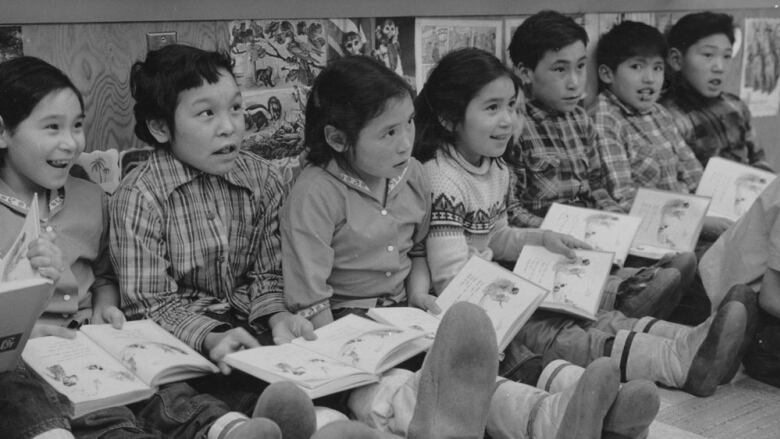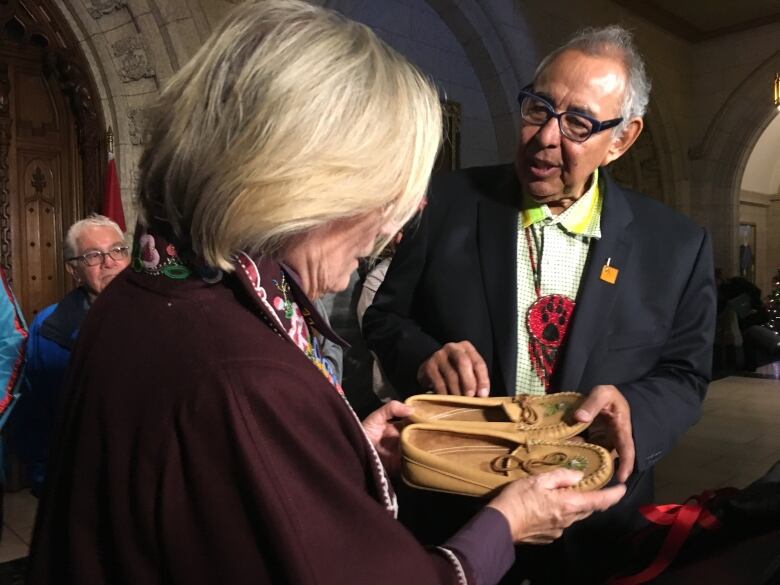What you need to know about filing an Indian day schools settlement claim
Nearly 700 schools operated across Canada between 1863 and 2000

Thousands of former students who suffered harms while attending federally operated Indian day schools are now able to submit claims for compensation.
The claims process began Jan. 13 for the long-awaited nationwide settlement, which offers former students a range of compensation between $10,000 and $200,000, based on abuse suffered.Former students have two and a half years to submit their claims.
"I am glad to finally reach this stage of the process and am hopeful that this settlement will help survivors and their families," said plaintiff Angel Sampson in a statement issued by GowlingWLG, the law firm handling the settlement.
"No amount of money will ever take away the memories of our experiences, but perhaps it can create new and better ones for us all. If Canada can acknowledge what we endured, in what was a very dark time of its history, then we can all make sure this never happens again."
A $200 million legacy fund will also be established for wellness and healing initiatives. The funding will be administered by the McLean Day School Settlement Corporation, an independent, not-for-profit corporation, which is still in the process of developing guidelines and procedures for grants to the fund.
What were Indian day schools?
Close to 700 Indian day schools operated across Canada in every province and territory except Newfoundland. That's five times more than the number of residential schools that operated across the country.
The first day schools opened in the early 1860s, while many closed or transferred to the community's control in the1970s, '80s, and '90s. The last school on the books to transfer was Oka Country school in Kanesatake, Que., on Sept. 1, 2000.
Like residential schools, day schools aimed to assimilate Indigenous children whileeradicatingIndigenous languages and cultures, and often had religious affiliations to the Roman Catholic, United, Anglican, and other churches.

Garry McLean started a legal action regarding the forced attendance of Indigenous students at Indian day schools in 2009. It proposed a national class action lawsuit to seekcompensation for the damages and abuses suffered by day school students, who were excluded from the $1.9 billionIndian Residential Schools Settlement Agreement.
McLean died in February2019 of cancer, a month before Canada announced a settlement agreement had been reached with the plaintiffs. The settlementwas approved by the Federal Court of Canada in August.
"The truth about these schools is that this was the ultimate of colonial practices,"Carolyn Bennett, minister of Crown-Indigenous Relations, told CBC News.
"It's important for Canadians to understand that it wasn't just the children who stayed overnight. This kind of abuse and damage that happened by having children ashamed to speak their language, ashamed to practise their culture, happened even among the children who were in these day schools and did go home at night."
Who is eligible for compensation?
Former students are eligible for compensation if they went to any ofthe 699 eligible schools that were funded, managed and controlled by Canada and suffered abuse or harm while in attendance. Estates can also make claims on a former student's behalf if they died after November2007.
How to submit a claim
The claim form is available online. Former students can request copies sent bymail by calling 1-888-221-2898.
Former students claiming compensation for level 1 harm(verbal abuse such a mocking or denigration,or physical harm such as unreasonable or disproportionate acts of discipline) arerequired to complete a four-part section of the formto the best of their ability with their contact information, names of the schools and years they attended, as well as a photocopy of a government-issued piece of identification.
Survivors claiming more severe forms of abuses and harms must complete a written narrative,provide evidence of attendance and relevant documentation such as medical records. Those who do not have the required support documentation are expected to complete a sworn declaration signed by the claimant and a notary, elected official, or other professional.
Completed forms can be submitted to the claims administrator by mail, fax or email until the deadline of July 13, 2022.Status updates on claims can take up to three weeks according to the information line.
Need help filing a claim?
Legal and mental health supports are available to those filing a claim.
Questions about the form, process, and legal support is available at 1-888-221-2898.
Mental health counselling and crisis support is also available 24 hours a day, seven days a week through the Hope for Wellness hotline at 1-855-242-3310 or online at www.hopeforwellness.ca. Counselling is available in English, French, Cree, Ojibway, and Inuktitut.
Some communities mayhave additional support for theirmembers. For example, In Kahnawake, Que.,the band council has made claim forms accessible at their main reception and plan on setting up a temporary information office in the future for its members who need assistance filling out claims.












_(720p).jpg)


 OFFICIAL HD MUSIC VIDEO.jpg)
.jpg)



























































































